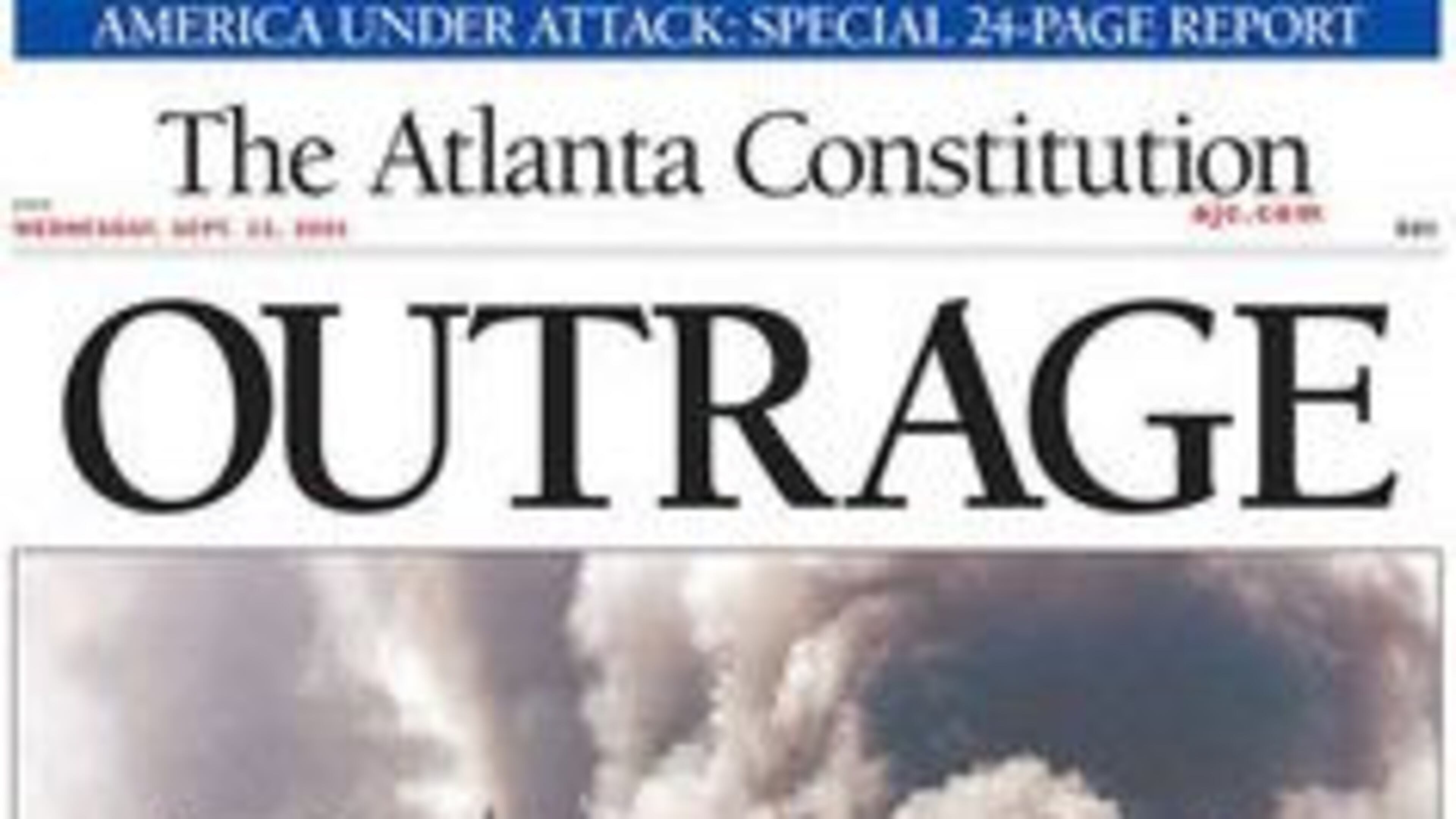Opinion: Memories of a day

Seventeen years ago today, every American was trying to come to grips with what we had just witnessed on our television screens, what we had felt in our hearts and guts as the twin towers in New York crumbled before our eyes, as the lives of thousands of our fellow citizens were wiped away in real time, as we watched.
At one point in the turmoil of the newsroom gearing up for the biggest story of our professional lives, I retreated to my cubicle. While I didn’t have a column scheduled, I knew that the best way to reclaim some sense of order out of my jumbled thoughts and emotions was to force myself to convert it into words and sentences. Like many people that day, I was operating out of instinct.
An editor walked by and looked over my shoulder.
“What are you doing?” she asked.
“Just ... writing something. I don’t know. There’s no slot for it, so ... just typing I guess.”
“Let me see what you’ve got.”
I gave her a printout of a rough draft and then went back to work. About an hour later, she came back to say they had found a home from the essay, as the text on the next day’s front page. This morning I retyped those words, and as I did they brought back to me all the confusion, shock, anger and determination of that uncertain moment in our history.
This is what they said:
“We occupy a different reality than we did a day ago.
Thousands lie dead, many still buried in the smoking rubble in New York and Washington. Millions grieve. Two landmarks of the Manhattan skyline have been obliterated, and an atmosphere of war pervades Washington. A nation slow to anger has been brought to justified fury.
But fury against whom? Retaliation, when it comes, will have to be as coolly calculated and well targeted as Tuesday’s attack. The memory of our dead deserves no less.
In American history, only one comparable event springs obviously to mind: Pearl Harbor. Those of us who could only guess at the effect of Dec. 7, 1941 on our parents and grandparents now understand much better. They must have felt what we feel now: an initial disbelief and stunned horror, followed by a stern resolve to see justice done.
In the wake of Pearl Harbor, we at least knew our enemies. Not this time. Not quite yet. It’s frustrating to be sucker-punched in such a devastating fashion and not know for sure who threw the punch.
The terrorists chose their targets well. They hit the twin towers of American power: the heart of commerce, in the World Trade Center, and the heart of our military, at the Pentagon. Any illusion of this country as Fortress America, able to insulate itself from the troubles of the world, crumbled along with those buildings. It was humbling to see people stumbling through the debris-strewn streets of mighty Manhattan, survivors of a carnage that had long ago grown familiar, if on a lesser scale, in scenes from Beirut, Sarajevo, Jerusalem and Tel Aviv.
The most sophisticated, technologically advanced nation in the world had been brought to its knees by an attack of brutal simplicity. But for a day, and only for a day.
Last night, members of Congress joined in singing “God Bless America” on the Capitol steps, and President Bush reaffirmed the nation’s strength and resolve against evil. This morning, the sun came up again, and with it came a new day. The rebuilding and healing begins.
And the day to settle accounts will come.”
